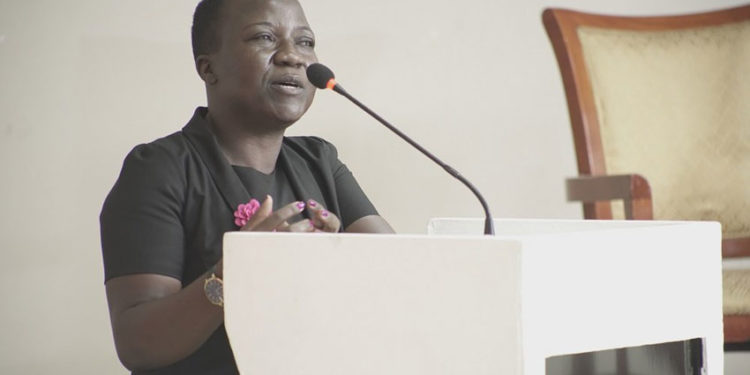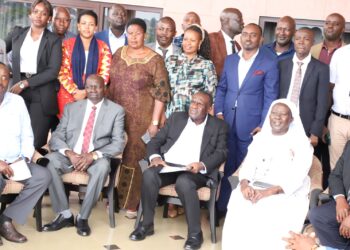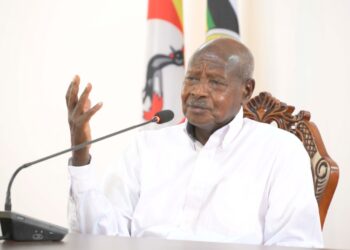As Uganda joins the rest of the world to commemorate the international Data Privacy Day, Unwanted Witness Uganda has expressed concern over government’s increased abuse of data privacy, safety and trust of Ugandans using the internet in the name of censorship.
Although the day aims at raising awareness about respecting privacy, safeguarding data and enabling trust, it has come at a critical moment when such factors in Uganda are eroding amidst intensified government censorship and surveillance.
Two weeks ago, on election eve government shut down the internet on grounds of maintaining public order, and although the internet has partially been restored, social media platforms remain restricted thus forcing people to use the Virtual Privacy Network (VPN) to access them.
According to Chris Kalema, the lead Technologist at Unwanted Witness, the te Civil society is concerned about how the prolonged social media restriction is driving Ugandans to use VPNs which come with a lot of data manipulation risks.
“Using VPNs in our daily lives creates an addiction but they siphon our data in form of names, addresses to do behavioural analytics for marketing and profiling. This information is transferred to third party users or the makers without the users’ consent,” Mr Kalema said in a statement on Thursday.
He added that VPNs are designed with codes that have trackers that the users may never know and unfortunately, Ugandans are using them without any clarity.
“VPN applications are free but they have permissions and pre-installed trackers that users cannot control or uninstall by design and therefore cannot be trusted.”
Mr Kalema also noted that throughout the election process, Unwanted Witness observed increased use of technology by security agencies to surveil on street protests and opposition political rallies, with an intent to limit dissenting voices. This has resulted in arrests and disappearances of an unidentified number of youths and scores of deaths.
He said; “The lack of public scrutiny in the use of biometric machines to verify voters and unknown results transmission system-generated mistrust between citizens and the electoral body, the Electoral Commission, jeopardizing the credibility of the process.”
As a move to curb the spread of Covid-19, the Electoral Commission instructed political candidates to use digital platforms to look for votes, unprecedented illegal use of people’s personal data by politicians has also been witnessed.
Dorothy Mukasa the Executive Director of Unwanted Witness also added that Political parties in Uganda were not transparent about their data processing activities, including publicly identifying the mechanisms they used to engage with voters ( social media, websites, direct messaging) and how they collected people’s data, what data they collected, and the sources of it and how they used it.
“The Electoral Commission failed to have in place effective safeguards (Binding code of conduct/Regulations) that reflected changes in digital campaigning. By doing this they would have fulfilled their mandate established under Article 60 and Article 61 of the Constitution of the Republic of Uganda 1995 (as amended) to organise, conduct and supervise regular, free and fair elections and referenda, among other functions, ” Ms Mukasa asserted.
She further said that one of the qualities of a trusted data collector is the ability to be transparent and accountable to the data subjects as enshrined in Section 3 (a) and (f) of the Data Protection and Privacy Act 2019 is having a robust Privacy Policy a legal document that discloses some or all of the ways the Electoral Commission or NIRA gathers, uses, discloses, and manages a person’s data, none of them has a Privacy Policy.
According to Ms Mukasa, there is still lack of transparency which led to voters to miss out on the voting exercise because the voters’ register was unclean with voters’ names repeated, name-face mismatches and deletion of some voters’ names from the register.
“We, therefore, call upon the government of Uganda to expedite the enactment of Data Protection and Privacy regulations for effective enforcement of the Data Protection and Privacy Act 2019 and to fully restore the internet to avoid data manipulation risks that come with the use of a VPN,” she said.
In some African countries, it is increasingly becoming the “new normal” for the state to shut down the Internet or block social media platforms under the guise of “maintaining public safety and State security” especially in times of elections or protests.
Uganda joins countries like Algeria, Burundi, the Central African Republic (CAR), Cameroon, Chad, DR Congo, Congo (Brazzaville), Egypt, Equatorial Guinea, Gabon, Ethiopia, Libya, Mauritania, Niger, Togo, Sudan, and Zimbabwe, Gambia, Mali, Morocco and Sierra Leone which have made shutting down the internet as their fighting tool.
Do you have a story in your community or an opinion to share with us: Email us at editorial@watchdoguganda.com













